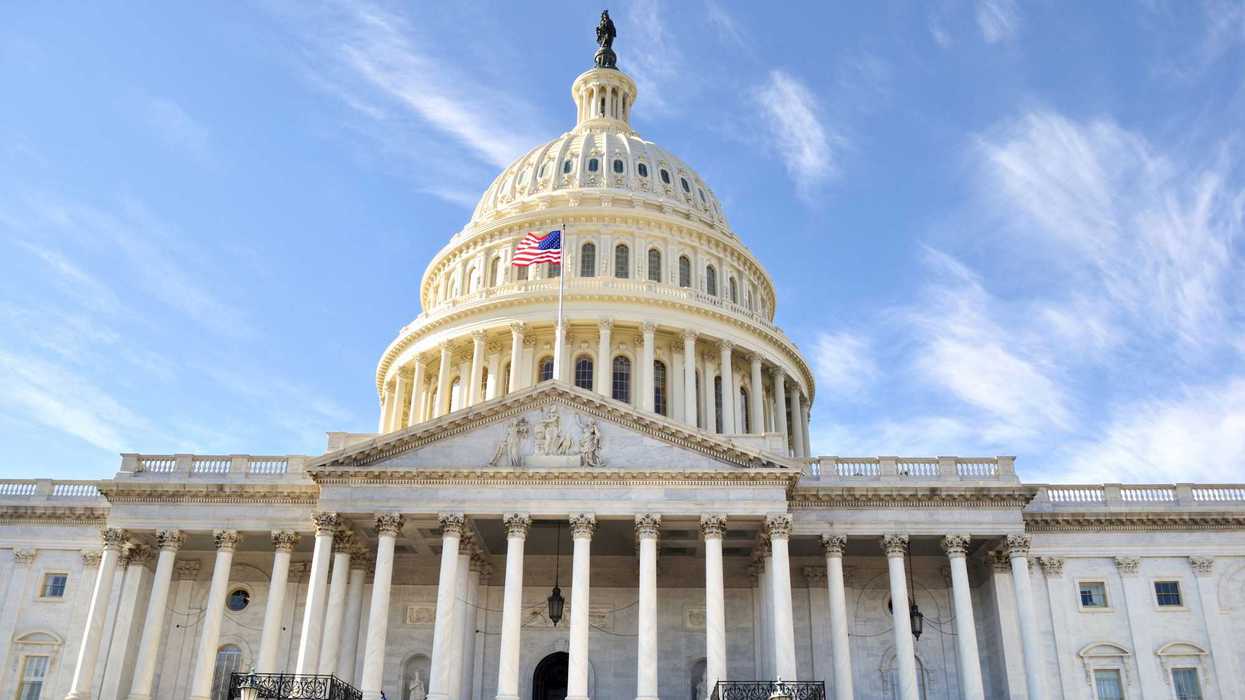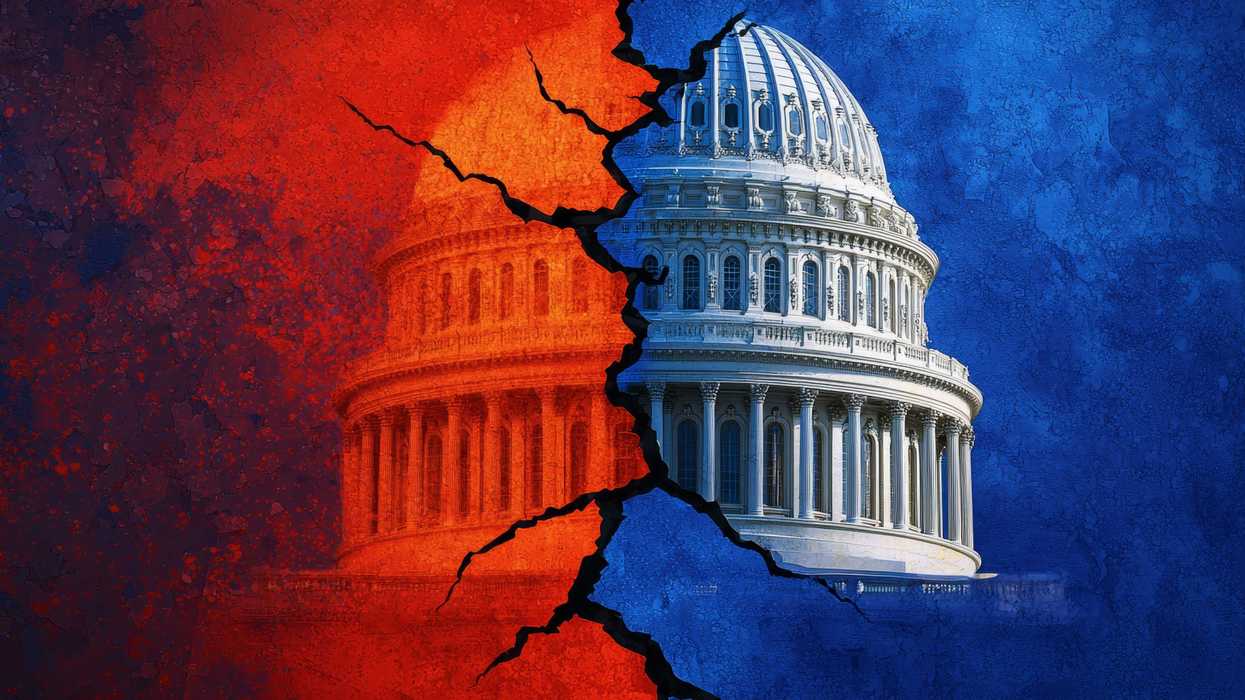John F. Kennedy’s only grandson, Jack Schlossberg, publicly voiced his disapproval on Instagram.
Context: the Kennedy Center
Opened in 1971, the John F. Kennedy Center for the Performing Arts (usually just called the Kennedy Center) is one of Washington, D.C.’s most famous venues for concerts, theater, comedy, and dance.
Prominent headlining performers in recent years have included John Oliver, Blue Man Group, Weird Al Yankovic, and John Williams.
For those around the country who can’t visit D.C. in person, the venue is most famous for its annual Kennedy Center Honors. Past honorees included Paul McCartney, Oprah Winfrey, Billy Joel, and Steven Spielberg. Bestowed every December, the lifetime achievement award is broadcast on CBS and usually attended by the president of the United States.
Context: Trump
But Trump, in his first term, ended the tradition by skipping the ceremony all four years, blasting the honoree selections and the Kennedy Center’s programming in general as “woke.”
In February, mere weeks into his second term, Trump purged much of the Kennedy Center’s board of directors with his supporters. They promptly named him as chair of the board, a decision often described as Trump effectively “naming himself” to the position.
From there, the venue canceled such previously-scheduled programming as the Gay Men’s Chorus of Washington, D.C. and the children’s musical Finn about diversity and acceptance.
In response, a number of artists and performing acts voluntarily canceled their own upcoming Kennedy Center performances. The most prominent such production: the rap musical Hamilton, which previously staged a hit Kennedy Center run in 2018.
In August, Trump announced that he will personally host the next edition of the Kennedy Center Honors, the first time a president has done so rather than just appearing in the audience. The award will be bestowed upon five of Trump’s personal favorites, including actor and director Sylvester Stallone, plus country music singer George Strait.
What the bill does
The Make Entertainment Great Again (MEGA) Act would rename the Kennedy Center to the Trump Center.
Rep. Bob Onder (R-MO3) introduced the bill on July 23.
This continues 2025’s trend of Republican legislation honoring or naming things after Trump, several of which The Fulcrum has covered—including bills letting him run for a third term, engraving his face on Mount Rushmore, adding his face to a new $250 bill, and making his July 13 assassination attempt an annual national holiday.
What supporters say
Supporters argue that Trump is a uniquely cultural figure as much as a political figure, so the preeminent cultural venue in the nation’s capital should reflect that duality.
“You would be hard pressed to find a more significant cultural icon in the past 40 years than President Trump,” Rep. Onder said in a press release. “President Trump’s love and mastery of entertainment has stood the test of time and allowed him to capture Americans’ attention for decades. I cannot think of a more ubiquitous symbol of American exceptionalism in the arts, entertainment, and popular culture at large than President Trump.”
What opponents say
Besides the obvious Democratic opponents, a more politically neutral argument could also be made. Namely: while Trump is unquestionably a cultural figure, he isn’t particularly known for the kind of “fine arts” that the Kennedy Center has historically championed.
The Kennedy Center is known in large part for its offerings in fields such as opera, jazz, and ballet. Meanwhile, Trump’s cultural imprint has comprised content more like:
- Singing the Green Acres theme song dressed in overalls at the 2005 Emmys
- Appearing 40 times on The Howard Stern Show during its peak “shock jock” era, often to discuss his sex life
- His 2011 Comedy Central roast, alongside the likes of Snoop Dogg and Mike “The Situation” Sorrentino from MTV’s Jersey Shore
(Although, to be fair, Trump did attend the Kennedy Center’s production of the stage musical Les Misérables in June.)
Odds of passage
The bill has not yet attracted any cosponsors, not even any fellow Republicans. It awaits a potential vote in the House Transportation and Infrastructure Committee, controlled by Republicans.
A similar Republican plan would rename the Kennedy Center’s opera house after First Lady Melania Trump. Rep. Mike Simpson (R-ID2) authored the proposal, introduced as an amendment to a much larger annual funding bill, rather than as standalone legislation.
In July, the House Appropriations Committee passed the larger funding bill—including the name change—by 33 to 28. Neither the full House nor the Senate has yet voted on it.
Jesse Rifkin is a freelance journalist with the Fulcrum. Don’t miss his report, Congress Bill Spotlight, on the Fulcrum. Rifkin’s writings about politics and Congress have been published in the Washington Post, Politico, Roll Call, Los Angeles Times, CNN Opinion, GovTrack, and USA Today.
SUGGESTIONS:
Congress Bill Spotlight: Banning Trump Administration From Renaming Naval Ship Harvey Milk
Congress Bill Spotlight: Making Trump Assassination Attempt a July 13 National Holiday
Congress Bill Spotlight: Requiring Public Schools Start the Day With the Pledge of Allegiance



















 Mayor Ravi Bhalla. Photo courtesy of the City of Hoboken
Mayor Ravi Bhalla. Photo courtesy of the City of Hoboken Washington Street rain garden. Photo courtesy of the City of Hoboken
Washington Street rain garden. Photo courtesy of the City of Hoboken
